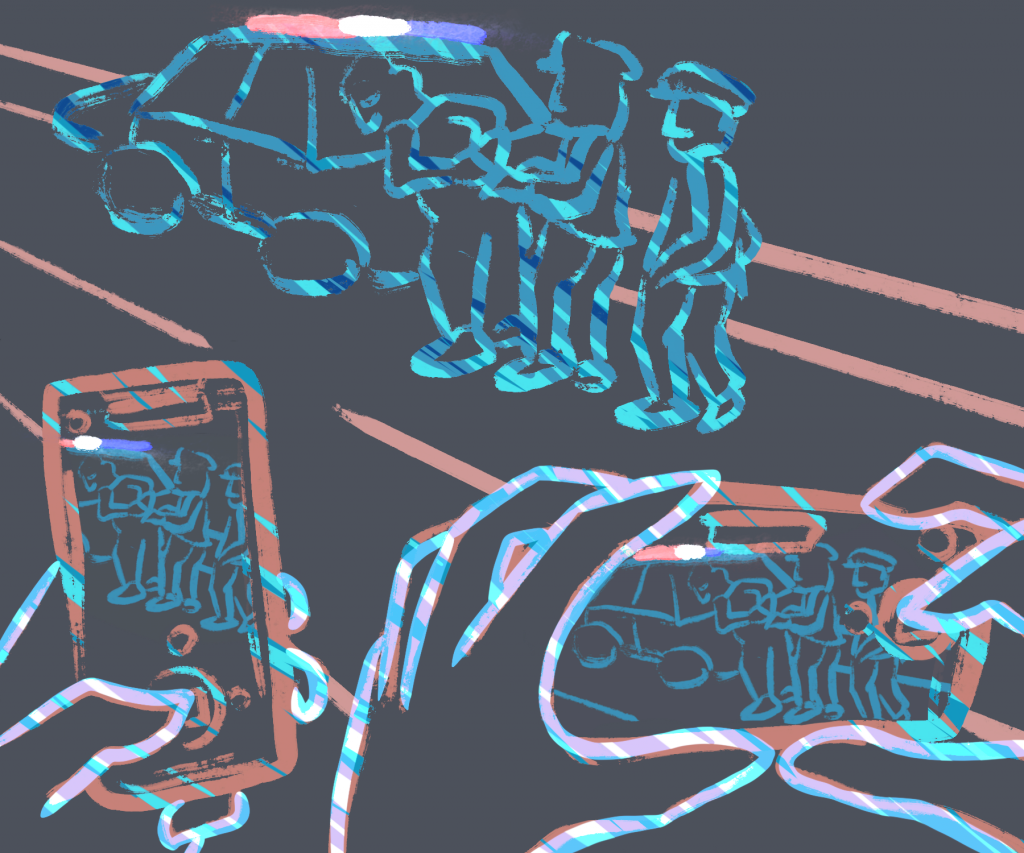In the past few years, the city of Binghamton has witnessed public uproar regarding allegations of the local police department abusing its power. In response, Progressive Leaders Of Tomorrow (PLOT) created bystander intervention programs with an aim to teach the community how to best respond in abusive situations.
Approximately 50 people attended one of their bystander intervention programs at the United Presbyterian Church of Binghamton on Thursday. A bystander, according to the session, is defined as someone who witnesses harmful behavior. The program was led by two people who went through various scenarios of harassment or abuse and explained how one could step in to help the victim.
Participants of the session shared their personal stories of witnessing events and how they interacted with the victims and aggressors of the situations. For the privacy and safety of those who participated and led the event, the attendees and presenters wished to remain anonymous.
Presenters noted that people often do not intervene during instances of harm because they are unsure of what to do. They encouraged participants to keep three things in mind while intervening: taking a second look at the situation to understand the factors at play, checking in with the victim and asking if they are okay and asking themselves, “What if this were me or someone I love?”
The interactive program was split into two parts; one showcased abusive situations with civilians and the other with police. Aviva Friedman, ‘14, a member of the Binghamton City Council and PLOT, said the event is necessary to alleviate the injustices the police impose. She framed the event as a way to “put power back in the hands of the people.”
“There are some people and properties that are protected by the police, but poor people, people of color — these things are criminalized consistently and so it can be disheartening and dangerous to rely on institutions that are built which do not serve the communities which they purport to protect,” Friedman said.
According to presenters, barriers to intervening can include personal situations such as being on probation, immigration status and privilege. They also explained the emergence of the Emergency First Responders Protection Act, a law that was recently proposed in the Broome County Legislature. The bill, which aims to prevent conduct intended to “annoy, alarm, or threaten the personal safety of the Emergency First Responder,” was postponed after protesters packed the Broome County Legislature’s chambers in November, but the policy is still under consideration, and similar measures have been passed in other areas across the country. Protesters argued the bill would place limits on First Amendment rights, and PLOT nicknamed it “The Police Annoyance Act,” arguing the measure intends to protect police officers that attempt to inflict harm.
Presenters at the bystander training aimed to teach attendees to lawfully intervene in harmful police interactions. They especially stressed filming the police, an approach they said is lawful and allows bystanders to collect evidence of any possible injustices occurring. They also encouraged bystanders to narrate while filming. Doing so allows the bystander to describe what is happening in the video and strengthens their witness account.
The training also educated participants on New York’s newly implemented bail reform law, which mandates that those who commit misdemeanors or nonviolent felonies should be released with no cash bail. Presenters encouraged bystanders to consider the bail reforms and the Emergency First Responders Protection Act when interacting with police.
A participant at the training noted that the event is crucial in increasing awareness of the harm occurring in communities.
“A general awareness that this stuff is happening next door to you, across the street, next to you, is important … to maintain a good level of communication between marginalized groups and those in power,” the participant said. “Organizing ideas like this that are open to the public and students is important, and gauging your own safety is important.”
Friedman suggested that empowering communities with tools such as bystander intervention will better reduce violence than putting trust in police departments.
“There is a misconception that not relying on the police equates to pro-crime, pro-violence, pro-chaos and that’s not true,” Friedman said. “We’ve been conditioned to think that the police are necessary to keep order, and when we empower our communities, strengthen our neighborhoods, know our neighbors, when we alleviate poverty, when we create communities that people are proud of and feel like they can protect — that is what leads to safety. More cops does not equate less violence.”



